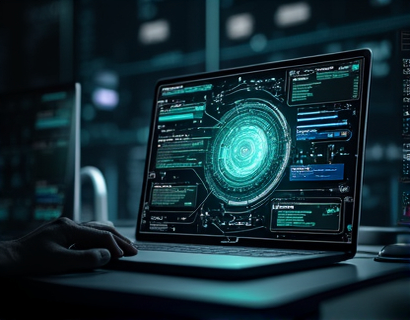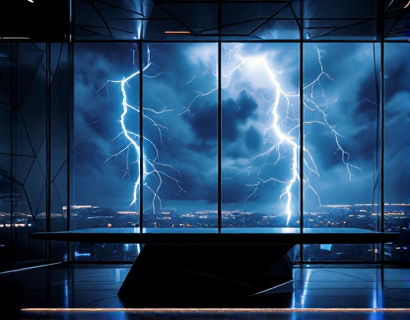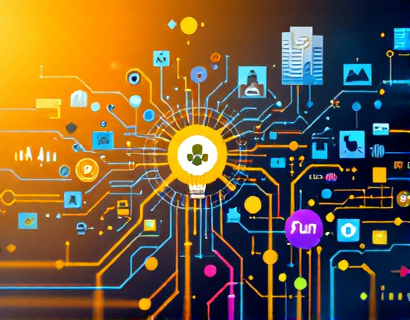Blockchain-Enhanced Online Notarization: A New Era of Document Security and Efficiency
The traditional notarization process, while crucial for ensuring the authenticity and legality of documents, often faces challenges related to efficiency, security, and accessibility. The integration of blockchain technology into online notarization services represents a transformative step forward, offering a robust, transparent, and secure solution for document authentication. This article delves into the intricacies of blockchain-enhanced online notarization, exploring its benefits, mechanisms, and the profound impact it can have on legal professionals and businesses.
Understanding Blockchain Technology
Before diving into the specifics of blockchain-enhanced notarization, it's essential to grasp the fundamental concepts of blockchain technology. Blockchain is a decentralized digital ledger that records transactions across multiple computers in such a way that the registered transactions cannot be altered retroactively. Each block in the chain contains a cryptographic hash of the previous block, a timestamp, and transaction data. This structure ensures that once data is recorded, it becomes immutable, providing a high level of security and transparency.
The Need for Enhanced Notarization Solutions
Traditional notarization involves a physical presence, manual verification, and a significant amount of paperwork. This process can be time-consuming, prone to errors, and vulnerable to fraud. The increasing digitization of documents and the need for rapid, secure, and verifiable authentication have highlighted the limitations of conventional methods. Blockchain technology addresses these issues by offering a decentralized, tamper-proof, and efficient alternative for document notarization.
How Blockchain Enhances Online Notarization
Blockchain-enhanced online notarization leverages the core principles of blockchain to create a secure and transparent notarization process. Here’s how it works:
Decentralization
Unlike traditional notarization, which relies on a central authority, blockchain operates on a decentralized network. This means there is no single point of failure, reducing the risk of data tampering or loss. The distributed nature of the ledger ensures that multiple copies of the data exist across the network, making it highly resilient to attacks and data loss.
Immutability
Once a document is notarized on a blockchain, the record cannot be altered or deleted. Each notarization creates a new block that is linked to the previous block through a cryptographic hash. Any attempt to modify a past block would require altering all subsequent blocks, which is computationally infeasible. This immutability ensures that notarized documents remain authentic and verifiable over time.
Transparency
Blockchain provides a transparent and auditable trail of all transactions. Every step in the notarization process, from the submission of the document to the final verification, is recorded on the blockchain. This transparency builds trust among all parties involved, as they can independently verify the authenticity and integrity of the documents.
Smart Contracts
Smart contracts, self-executing contracts with the terms directly written into code, can automate and enforce the notarization process. These contracts can trigger the notarization once certain conditions are met, such as the submission of required documents and payment of fees. This automation reduces manual intervention, speeds up the process, and minimizes the risk of human error.
Benefits of Blockchain-Enhanced Notarization
The adoption of blockchain technology in online notarization brings numerous advantages to legal professionals and businesses:
Enhanced Security
The cryptographic techniques and decentralized nature of blockchain make it extremely difficult for unauthorized parties to tamper with notarized documents. This level of security is crucial for legal and financial documents, where authenticity and integrity are paramount.
Increased Efficiency
Blockchain-enhanced notarization streamlines the process by eliminating the need for physical documents and manual verification. Documents can be notarized instantly, and the verification process is automated and instantaneous, reducing delays and costs associated with traditional methods.
Improved Accessibility
With blockchain-based notarization, documents can be accessed and verified from anywhere in the world, as long as there is an internet connection. This global accessibility is particularly beneficial for international businesses and legal matters that cross borders.
Reduced Costs
By automating many steps in the notarization process and reducing the need for intermediaries, blockchain-enhanced solutions can significantly lower costs. This makes high-quality notarization services more accessible to a broader range of users, including small businesses and individuals.
Case Studies and Real-World Applications
Several organizations have already begun implementing blockchain-enhanced notarization solutions, demonstrating their practical applications and benefits:
Legal Document Verification
A law firm in a major city implemented a blockchain-based notarization system for verifying the authenticity of legal documents. The firm reported a 70% reduction in processing time and a significant decrease in fraudulent documents. The transparency of the blockchain ledger allowed clients to verify the status of their documents in real-time.
International Business Transactions
An international consulting firm used blockchain-enhanced notarization for cross-border agreements. The firm highlighted the ease of verifying documents across different jurisdictions and the reduced risk of document tampering. The immutable record ensured that all parties had access to the same, unaltered version of the documents.
Real Estate Transactions
A real estate company integrated blockchain notarization into its process for property transactions. The company experienced a notable increase in client trust and satisfaction due to the enhanced security and transparency. The automated smart contracts sped up the notarization process, leading to faster closing times and reduced administrative costs.
Challenges and Considerations
While the benefits of blockchain-enhanced notarization are clear, there are several challenges and considerations to address:
Regulatory Compliance
The legal framework for blockchain and digital notarization varies by jurisdiction. Ensuring compliance with local laws and regulations is crucial. Organizations must work closely with legal experts to navigate the regulatory landscape and obtain necessary certifications.
User Education
Adopting new technology requires education and training. Both legal professionals and clients need to understand the benefits and mechanics of blockchain-enhanced notarization. Providing clear, accessible information and support can facilitate smoother adoption.
Scalability
As the use of blockchain-enhanced notarization grows, ensuring the scalability of the system is important. The network must handle a large volume of transactions without compromising performance or security. Continuous optimization and infrastructure upgrades are necessary to meet growing demands.
Future Prospects
The integration of blockchain technology in online notarization is still in its early stages, but the potential for growth and innovation is vast. Future developments may include:
Interoperability
Standardizing blockchain protocols to ensure interoperability between different systems will enhance the global adoption of blockchain-enhanced notarization. This will allow for seamless verification of documents across various platforms and jurisdictions.
Enhanced User Interfaces
Improving the user interface and experience will make blockchain-based notarization more accessible to non-technical users. Intuitive and user-friendly platforms will encourage wider adoption and usage.
Integration with Other Technologies
Combining blockchain with other emerging technologies, such as artificial intelligence and the Internet of Things (IoT), can further enhance the notarization process. For example, AI can automate document analysis and risk assessment, while IoT can provide real-time verification of physical documents.










































